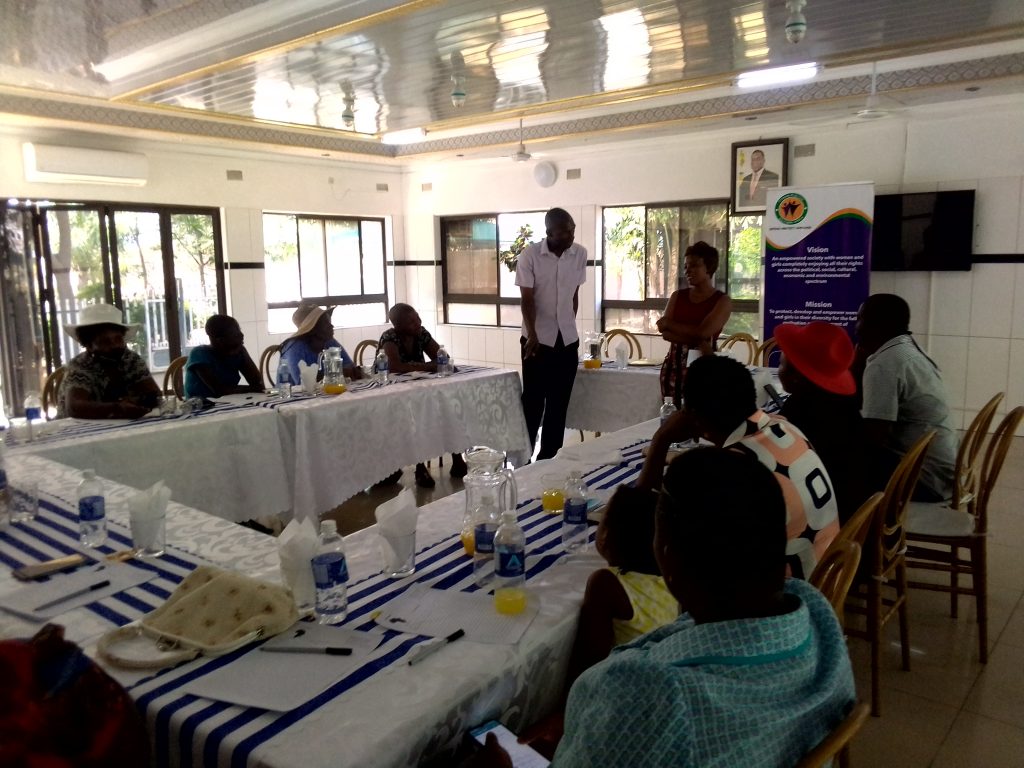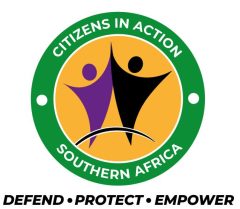
The spread of rumors and misinformation has become a global pandemic that has been largely driven by social media, gaps and barriers that exists when accessing information especially in marginalized communities, minority groups and among people with disabilities. With the COVID 19 pandemic taking over, nothing spared these groups as they experienced a lot of rumors and misinformation around the virus. While accessing most of their information in dominant languages (English, Shona and Ndebele), in formats that are not accessible to them, and with limited media literacy skills, the ability to identify misinformation and rumors correctly and quickly has become a critical skill for people with disabilities and minority groups like Shangani speaking people.
That is why Citizens in Action Southern Africa organized and facilitated a Focus Group Discussion in Chiredzi on the 19th of September 2022 with people with disabilities and Shangani speaking people. The program, which is being led and funded by Rooted in News Trust , was specifically developed to combat “infodemia” and the spread of misinformation and rumors that hinder efforts to stop the spread of COVID-19. This is being done through understanding rumors and misinformation around COVID 19 among minority groups and people with disabilities.
The total number of participants who attended this focus group discussion is 15, disaggregated by gender 6 males and 9 females and this figure includes people with disabilities. Physically challenged participants were 6 and there was no participants with hearing impairments. 4 of the participants had visual impairments. During the discussion, people with disabilities shared rumors and misinformation they experienced ranging from what Covid 19 is, its signs and symptoms, how it is transmitted to rumors on vaccine theories and booster shots and how these impacted on them. Participants went on to raise concern over the way in which government acted during the pandemic which they said fuelled the spread of rumors and information.
“Placing soldiers in the streets and forcing people to stay at home without giving people enough, adequate and information in accessible formats by all fuelled the spread of rumors around the virus”, echoed one of the participants.
He went on to add that the way trends were being set during the pandemic influenced people to think that the pandemic was not real as the government seems be to following certain countries.
One of the Shangani speaking people indicated that some of the rumors were that the virus was for the rich people. However, what was confusing them was that if it was true why then were the vaccines even a mandatory to poor people. This therefore influenced the thoughts that the virus was there to wipe out the African race hence those in power like politicians were vaccinating themselves with fake vaccines. Adding to what was said, another Shangani speaking participant said some health workers who refused to vaccinate themselves also fuelled the spread of these rumors and misinformation among the public.
Participants recommended Civil society organizations to partner with media organizations to enhance the media literacy skills of people with disabilities, to equip them practical tools so that they can be able to deal with rumors and misinformation in their daily situation.
Participants reiterated that government should not involve itself when pandemics strike to avoid politicization of processes but should let experts and technocrats be in charge.
Shangani speaking people applauded the government for its efforts of licensing community radio stations to bridge the information gap and address the language barrier gap but went on to indicate that the community radio stations were not of much use to the minorities because of their limited reach hence recommended installation of information hubs in the communities to sever the information interests of the minority and people with disabilities.
`
